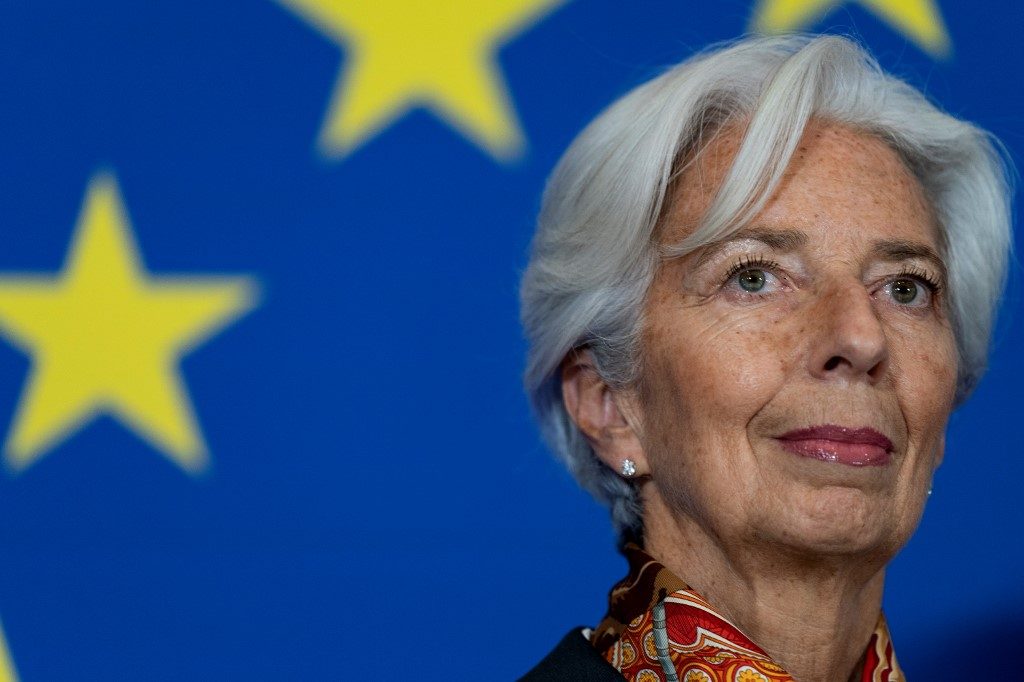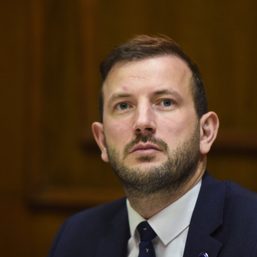SUMMARY
This is AI generated summarization, which may have errors. For context, always refer to the full article.

European Central Bank (ECB) chief Christine Lagarde said on Monday, September 28, she wasn’t “overly concerned” about differences among governing council members over the future direction of the bank’s pandemic stimulus.
Senior members are becoming increasingly split on future moves to address the economic fallout from the coronavirus between those who believe the ECB’s monetary policies should be more restrained and those who think support for the bloc’s economy should carry more weight.
“I’m not overly concerned that people can have slightly different views and opinions,” ECB chief Lagarde told an online hearing before the European Parliament.
“What is important is actually once a decision has been made and once a majority has been established it’s a question of discipline, staying the course, being together,” the former French finance minister said.
Lagarde, 64, said she was a “consensus builder” and could only build agreements “if views are slightly different amongst members.”
The current president of the Frankfurt-based institution succeeded Italian Mario Draghi last November when the board was divided as never before, after hawkish German policymaker Sabine Lautenschlaeger resigned in what was seen as a rebuke at Draghi’s stimulus policies.
Lagarde managed the transition, before the coronavirus pandemic brought unprecedented challenges prompting the ECB to take exceptional measures to keep liquidity flowing in the eurozone.
However, cracks have started to form.
ECB executive board member Fabio Panetta last week said that, in response to COVID-19, “the risks of a policy overreaction are much smaller than the risks of policy being too slow or too shy to react and the worst-case scenarios materializing.”
In contrast, outgoing board member Yves Mersch believes the ECB should limit itself to reacting to the economic effects of the pandemic through its emergency bond-buying program, known as PEPP.
PEPP is “exceptional and therefore temporary,” Mersch said, and that transferring any of the PEPP features to the bank’s asset-purchase program, would be legally “very curious.”
The ECB is ready to “adjust all its instruments” to allow the economy to recover, Lagarde reiterated on Monday.
The crucial moment for the ECB could come in December, when it is expected to announce further action armed with new projections for 2023. – Rappler.com
Add a comment
How does this make you feel?


![[Time Trowel] Evolution and the sneakiness of COVID](https://www.rappler.com/tachyon/2024/02/tl-evolution-covid.jpg?resize=257%2C257&crop=455px%2C0px%2C1080px%2C1080px)







There are no comments yet. Add your comment to start the conversation.